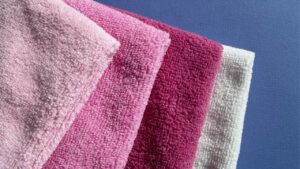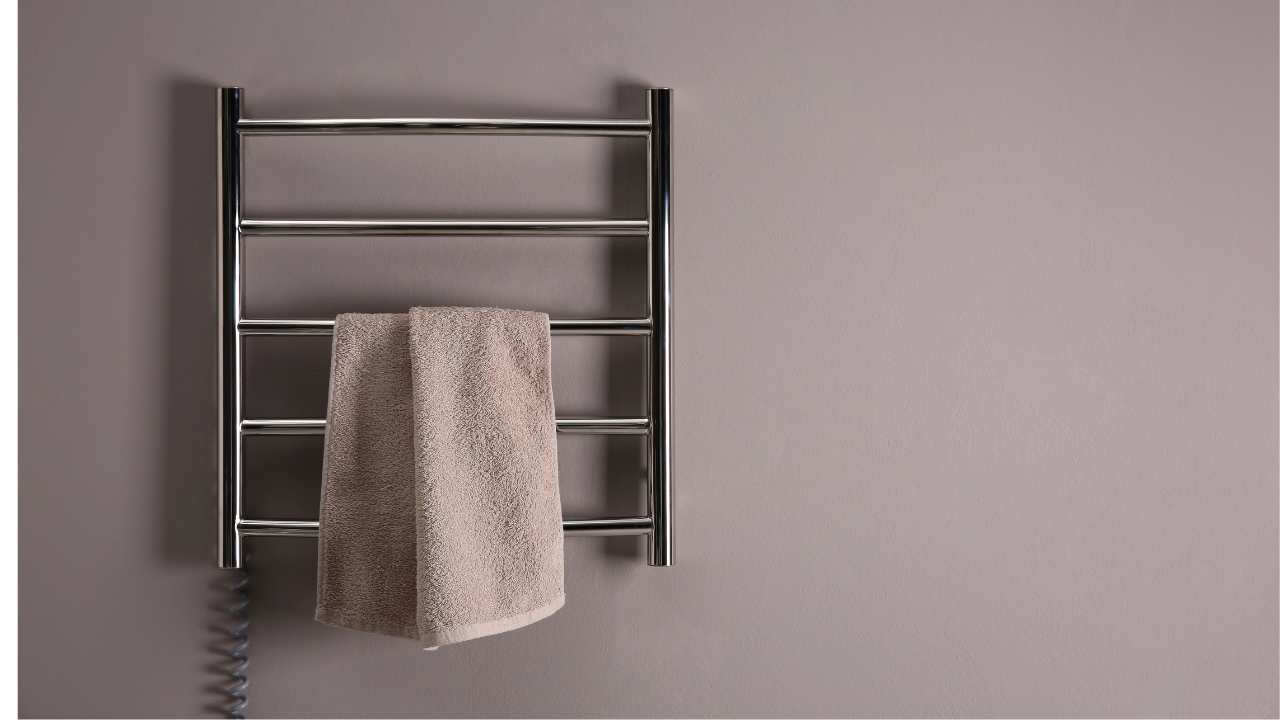Is It Safe to Put Towels on the Radiator?
Yes, it is generally safe to put towels on the radiator. Ensure the towels are dry and that the radiator’s surface is clean.
Warming towels on a radiator can bring a touch of cozy luxury to any bathroom experience.
The warmth provided by the radiator helps in not just heating the room, but also in keeping towels dry and toasty.
This practice is common in colder climates or during winter months, offering a comforting embrace after a shower or bath.
It’s essential to use this method judiciously; always check manufacturer guidelines to ensure that your type of radiator is suited for this purpose.
A well-ventilated space is key to avoiding any buildup of dampness or mold.
Remember to spread the towels out evenly to promote better heat circulation and avoid any potential fire hazards.
The Heated Debate: Towels On Radiators
Is it a wise move to dry your towels on the radiator?
This common household practice has stirred a heated debate.
Some swear by the warmth and convenience, while others caution against potential risks.

Let’s unfold the layers of this discussion to see if the warmth of your radiator should extend to your towels.
- Pros:
- Quick drying
- Warm towels ready for use
- No need for a tumble dryer
- Cons:
- May reduce heating efficiency
- Potential dampness can lead to mold
- Wear and tear on towels
Myths abound regarding drying towels on radiators.
They range from causing irreversible damage to being a leading cause of household fires. But what does science say?
| Myth | Fact |
|---|---|
| Towels block all heat | They slow down heat transfer, not block it completely |
| Heavy energy costs | Minor increase if used wisely |
| Risk of fire | Low if radiator is in good condition |
Understanding the balance between convenience and safety is key.
Consult your radiator’s manual and adhere to safety guidelines.
With proper knowledge, enjoying the coziness of warm towels could be part of your daily routine.
Health Implications Of Warm Towels
Wrapping yourself in a warm towel feels cozy.
Yet, warm towels raise health questions. We’ll explore if this snug habit is safe health-wise.
Bacterial Growth Considerations
Warmth and moisture make a perfect breeding ground for bacteria.
Drying towels on radiators might seem ideal, but there’s a risk.
Bacteria can multiply on these steamy fabrics.
Let’s break down why this matters.
- Dampness: Warm radiators don’t always dry towels fully.
- Temperature: Towels stay warm, but not hot enough to kill germs.
- Environment: Closed rooms with warm towels can host bacteria.
- Usage Frequency: Frequent use without proper washing boosts bacterial growth.
Effects On Skin Health

Your skin might pay the price for toasty towels.
Heated towels can irritate sensitive skin, or lead to other troubles.
Below, key points show how.
| Warm Towel Effect | Skin Health Impact |
|---|---|
| Over-Drying | Skin can lose moisture and feel dry. |
| Direct Heat | Heat can make skin red and itchy. |
| Bacteria Transfer | Bacteria from towels can cause acne or infections. |
| Allergen Buildup | Dust mites thrive in warmth, affecting allergies. |
Material Matters: Types Of Towels
Different towels serve diverse needs.
Knowing which one is safe for your radiator is key.
Your choice in towel materials affects drying time and efficiency.
Let’s explore common towel types and their compatibility with radiators.
Cotton
Cotton towels reign in most homes. They are fluffy and highly absorbent.
Here’s why cotton works well:
- Natural fibers allow air to circulate.
- They dry quickly when draped over a radiator.
- Cotton can handle heat without damage.
Microfiber
Microfiber towels are modern favorites.
These towels are made with fine synthetic fibers.

Pros of microfiber include:
- Fast-drying capabilities.
- They take up minimal space.
- Microfiber is less likely to harbor odors.
Yet, they may melt at high temperatures, so check your radiator’s heat.
Others
Bamboo, linen, and Turkish towels might also be found in homes.
These materials provide unique benefits such as eco-friendly properties and luxurious feels.
| Material | Properties | Radiator Safety |
|---|---|---|
| Bamboo | Soft, anti-bacterial | Generally safe |
| Linen | Highly durable, lightweight | Safe at lower heats |
| Turkish | Quick-dry, thin | Monitor for heat sensitivity |
Each towel type has its merits in drying efficiency.
- Cotton towels offer balance in absorption and drying time.
- Microfiber dries quickly, meaning less time on the radiator.
- Other materials like bamboo dry slower but bring eco-advantages.
Select the towel that meets your drying needs and is safe for your radiator’s heat levels.
Safety First: Fire Hazards And Precautions
Using a radiator to dry towels seems practical. It’s fast and easy.
Yet, safety should never take a back seat.
Drying towels on radiators might cause fires if not done carefully.
Understanding the risks and taking the right steps can prevent accidents.
Let’s dive into the potential dangers and how to stay safe.
Potential Risks

Drying towels on radiators has risks.
They involve overheating, restricted airflow, and flammability:
- Overheating: Towels can block heat escape, causing radiators to overheat.
- Restricted Airflow: Air can’t move well when towels cover radiators. This might mean more heat than intended.
- Flammability: Towels close to very hot surfaces may catch fire.
Best Practices For Safe Use
Stay safe while drying towels on radiators.
Follow these best practices:
- Quality Towels: Use towels that are less flammable.
- Monitor Heat: Keep radiators at a safe temperature. Never too hot.
- Clear Space: Ensure the area around the radiator stays clear.
- Attention: Never leave a drying towel unwatched for long.
Follow these simple steps to keep the risk low. Enjoy the warmth safely!
Energy Efficiency And Cost Implications
Putting towels on radiators is common in many homes.
This practice raises important questions about energy efficiency and cost.
Is it really a smart move for your wallet and the planet?
Let’s dive into the costs of keeping your radiator running and explore eco-friendly options.
Drying towels on radiators seems convenient, but it can affect your heating bills and energy consumption.
Towels can block heat from spreading around the room.
This makes your radiator work harder to warm the space. It’s worth knowing the cost of this practice and considering greener alternatives.
Cost Of Constant Radiator Use
Keeping radiators on to dry towels can lead to higher energy bills.
Cost varies by:
- Towel thickness
- Radiator type
- Energy rates
The thicker the towel, the longer it takes to dry.
This means your radiator stays on longer.
Traditional radiators are less efficient than modern ones.
Energy rates also fluctuate, so constant usage can become pricey.
| Radiator Type | Cost Increase (%) |
|---|---|
| Older Models | 10-15% |
| Modern Efficient | 5-10% |
Eco-friendly Alternatives
Looking for greener options? Consider these methods to dry towels:
- Heated towel rails
- Indoor drying racks
- Outdoor line drying
Heated towel rails use less energy.
They are designed to dry towels efficiently.

Indoor racks are perfect for small spaces and cost nothing to operate.
Nothing beats the sun, so if possible, opt for line drying outdoors.
It’s free and reduces your carbon footprint!
Conclusion: Balancing Safety And Comfort
Conclusion: Balancing Safety and Comfort plays a critical role when it comes to home practices like drying towels.
Many wonder about the risks versus the rewards of using radiators.
The key lies in striking a harmonious balance that doesn’t compromise on warmth or wellness.
Final Recommendations
- Check radiator temperature regularly to ensure towels don’t overheat.
- Use a timer to avoid leaving towels unattended for too long.
- Avoid covering the entire radiator, which can block heat circulation.
- Opt for towel-specific radiator racks for a safer drying solution.
Future Innovations In Towel Drying
Exciting advancements await in the realm of towel drying.
From the integration of energy-efficient designs to the use of smart technology, the future looks toward maximizing safety and enhancing comfort.
Innovators are exploring options like low-heat radiators specifically engineered for towels and even radiators with built-in moisture sensors.
These future-oriented solutions could transform our daily routines and offer even greater peace of mind.
Frequently Asked Questions On Is It Safe To Put Towels On The Radiator
Can Towels Damage Radiators When Drying?
Drying towels on radiators isn’t inherently damaging.
However, constant use can lead to paint discoloration and increased wear.
It’s essential to spread towels out evenly and avoid overloading to minimize potential damage to the radiator.
Does Drying Towels On Radiators Affect Heating Efficiency?
Yes, placing towels on radiators can affect efficiency.
It limits airflow and heat distribution, somewhat reducing a room’s overall heating.
For optimal efficiency, it’s best to use a dedicated towel rail instead.
Is It A Fire Risk To Put Towels On The Radiator?
Generally, placing towels on the radiator isn’t a significant fire risk if the radiator is in good working condition.
However, ensure towels are not in contact with electrical parts and avoid covering thermostatic radiator valves.
How Long Can I Leave Towels On The Radiator?
Towels shouldn’t be left on the radiator indefinitely.
Once dry, remove them promptly to restore radiator efficiency and prevent moisture build-up from damp towels, which could contribute to a damp environment.
Conclusion
To sum up, placing towels on the radiator can be secure if done right. Ensure the radiator is clean and inspect it regularly.
Avoid synthetic materials to reduce fire risks. Remember, safety first—always prioritize it over convenience or speed.
For warm, dry towels, cautious use remains key.

